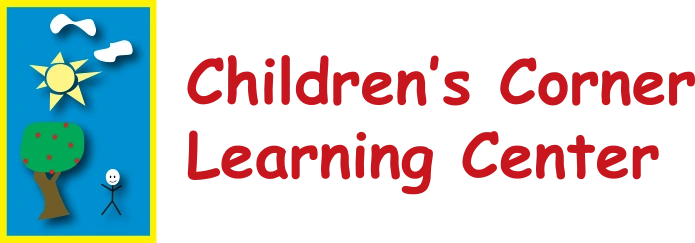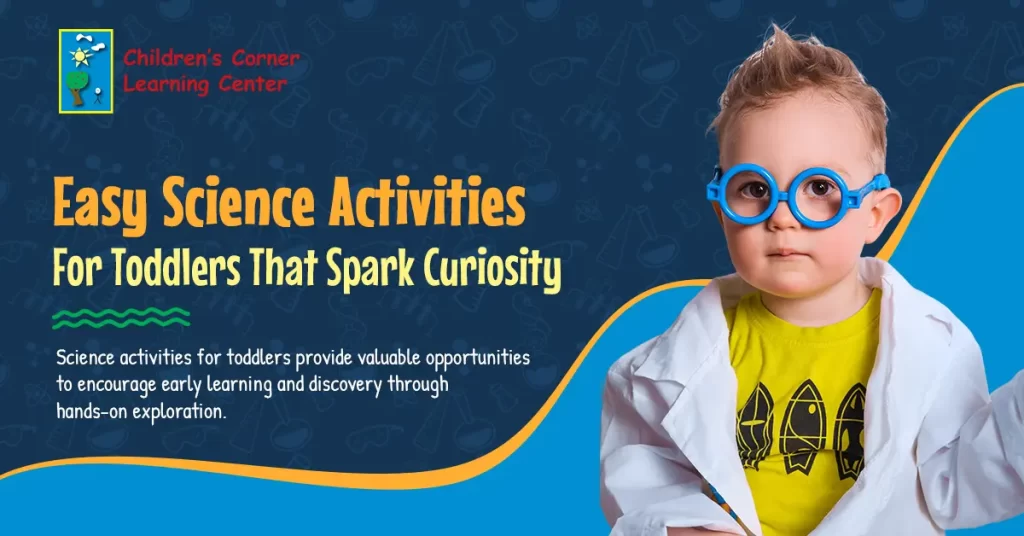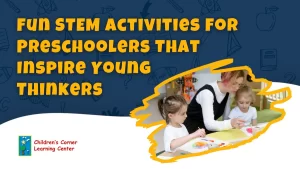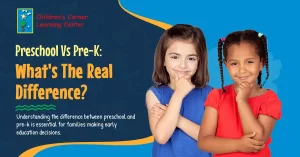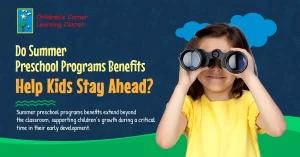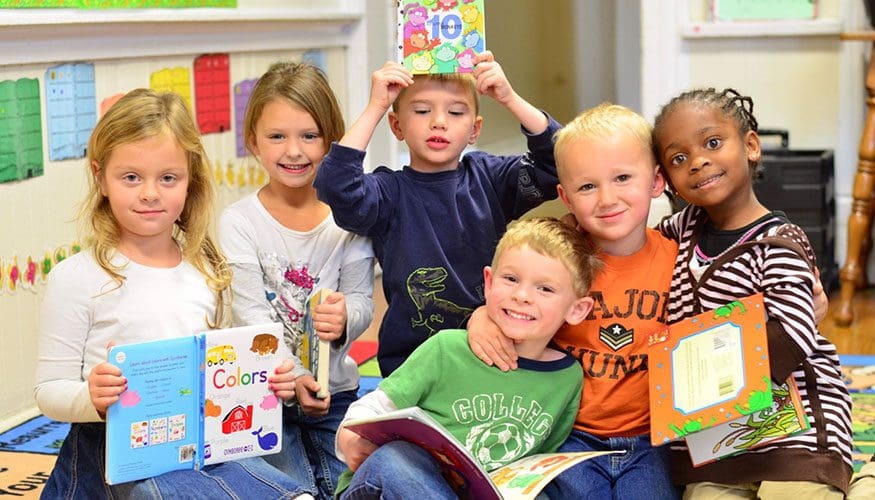Science activities for toddlers provide valuable opportunities to encourage early learning and discovery through hands-on exploration. Children develop critical thinking skills and a fundamental understanding of the world at a young age by observing cause and effect in everyday experiences. Simple, age-appropriate science activities foster natural curiosity and promote sensory development, language growth, and cognitive progress.
These activities can be implemented in structured learning environments and at home, helping toddlers gain confidence as they explore new ideas. Educators and caregivers support children’s development by incorporating science into daily routines, making learning engaging and meaningful. The following list of easy science activities is designed to inspire interest and excitement, using safe materials and concepts suitable for toddlers at various developmental stages.
What Are Some Science Activities for Toddlers?
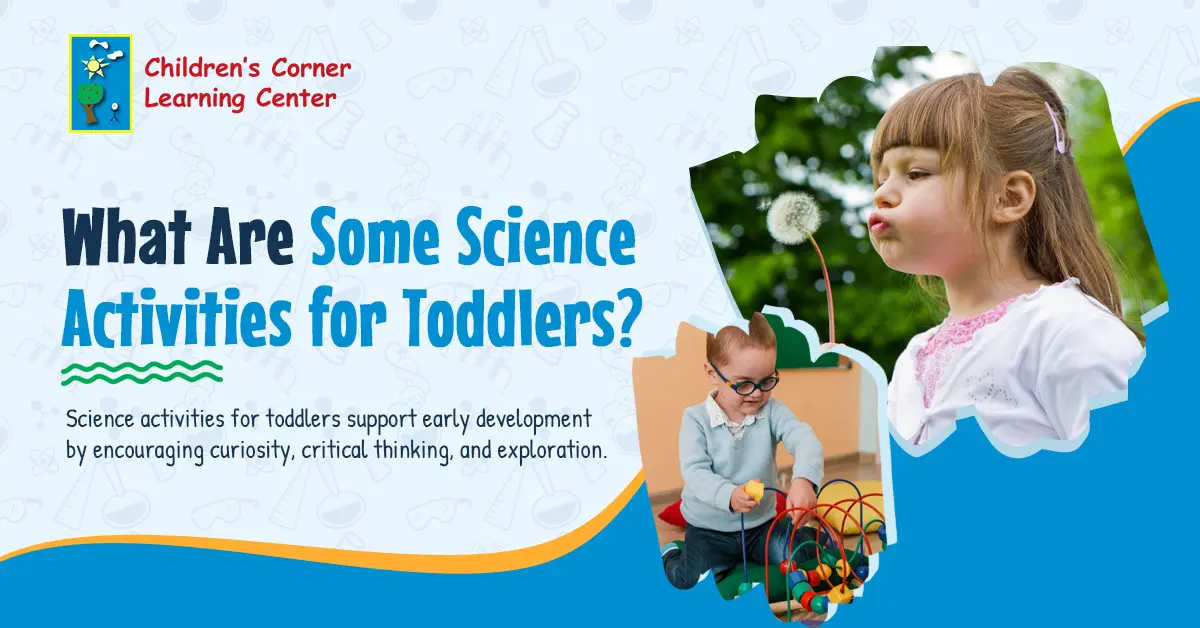
Science activities for toddlers support early development by encouraging curiosity, critical thinking, and exploration. Simple experiments can help children understand cause and effect, patterns, and environmental changes with the right materials and guidance.
Exploring Objects That Sink or Float
Water-based activities are both engaging and educational for toddlers. A sink-or-float experiment allows children to explore the concept of buoyancy hands-on. Use a clear container filled with water and provide various safe objects for the child to test.
- Plastic block: Stays on the surface, introducing the idea of floating.
- Spoon: Sinks quickly, showing how heavier items behave.
- Leaf: Gently floats, demonstrating lightweight natural materials.
- Crayon: Often sinks, depending on size and shape.
- Rubber ball: Typically floats, allowing for comparison with similar-sized objects.
After testing each object, ask toddlers what they observed. This activity also promotes language development and introduces early scientific vocabulary.
Color Mixing with Water and Food Coloring
Introducing color theory through science helps toddlers understand changes and combinations. This experiment uses clear cups of water and primary color food dyes. Children mix two colors at a time using droppers or spoons.
- Red + Blue: Creates purple, showing a color transformation.
- Yellow + Blue: Forms green, reinforcing recognition of new colors.
- Red + Yellow: Results in orange, highlighting predictable outcomes.
The visual results are immediate, keeping children engaged. Additionally, this activity supports fine motor skill development and sensory learning.
Observing Melting Ice
Ice-melting experiments introduce toddlers to temperature and physical change. Provide ice cubes in a tray and observe how they transform over time. To enhance the experience, add different elements.
- Salt: Speeds up melting, showing chemical interaction.
- Warm water: Causes faster melting than room temperature.
- Sunlight exposure: Demonstrates the effect of natural heat.
These simple variations give toddlers multiple comparisons and promote deeper observation. Encourage them to describe what they see and feel to build descriptive language and awareness.
How Do I Teach My 2-Year-Old Science?
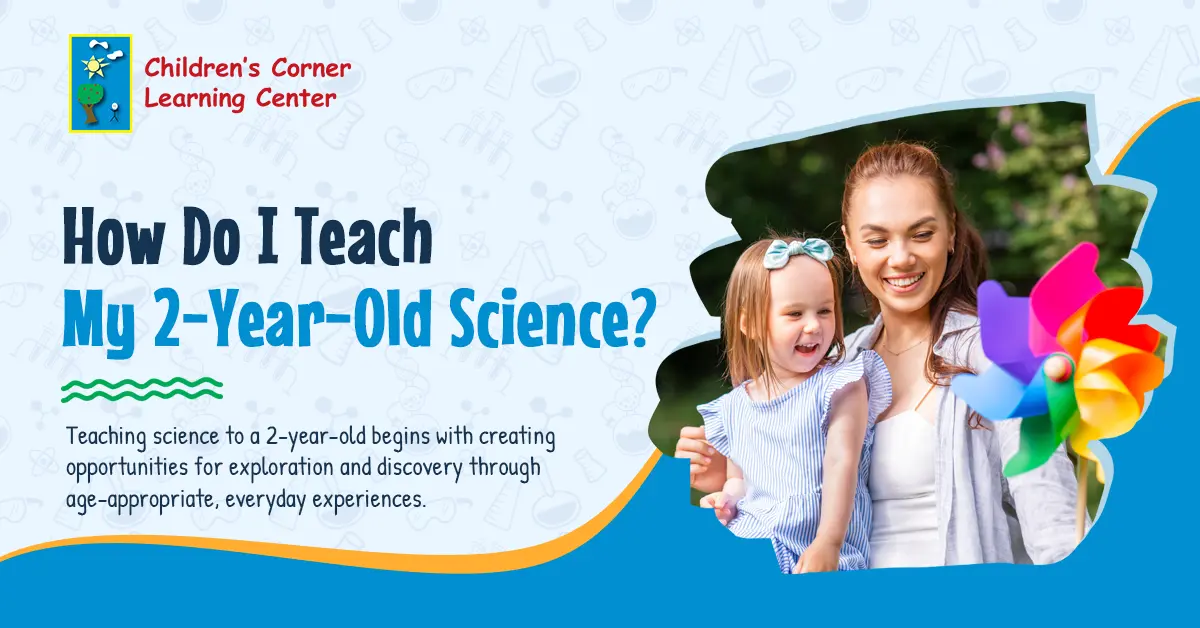
Teaching science to a 2-year-old begins with creating opportunities for exploration and discovery through age-appropriate, everyday experiences. At this stage, toddlers learn best through sensory play, repetition, and hands-on interaction with their environment. Introducing simple scientific ideas can be done naturally through guided play and observation.
Use Everyday Moments for Learning
Daily routines offer valuable chances to introduce scientific thinking. Bathing, cooking, or walking outside can encourage curiosity and questioning. With consistent support, these moments help toddlers make sense of the world.
- Bath time bubbles: Show how water and soap interact.
- Watching rain: Offers a chance to talk about weather and water cycles.
- Cutting fruit: Allows toddlers to observe textures, seeds, and colors.
- Walking in nature: Promotes questions about animals, plants, and insects.
- Turning lights on/off: Introduces the concept of cause and effect.
Encourage your loved one to touch, smell, and observe, helping them engage all senses during learning.
Ask Simple, Open-Ended Questions
Questions guide toddlers to think more deeply and build connections. Using language that prompts reflection and observation is key to early science understanding. During activities, model curiosity and give children time to respond.
- “What do you see happening?”: Encourages observation.
- “How does it feel?”: Promotes sensory awareness.
- “What do you think will happen next?”: Builds prediction skills.
- “Why do you think that happened?”: Stimulates reasoning.
- “Can you show me?”: Supports communication and understanding.
These questions help toddlers express themselves and begin using logic, even in basic forms.
Create a Safe and Stimulating Environment
A well-prepared space allows toddlers to explore independently and safely. Provide materials inviting experimentation and interaction, focusing on textures, movement, and change.
- Water tables: Offer opportunities to scoop, pour, and observe.
- Blocks and stacking toys: Support spatial reasoning and balance.
- Magnets and metal items: Introduce attraction and repulsion.
- Natural materials: Encourage classification and sorting.
- Clear containers: Help children observe contents and reactions.
Teaching science to a 2-year-old involves patience, repetition, and enthusiasm. With the right environment and gentle guidance, toddlers build foundational skills for scientific thinking.
What Does Science Do for Toddlers?
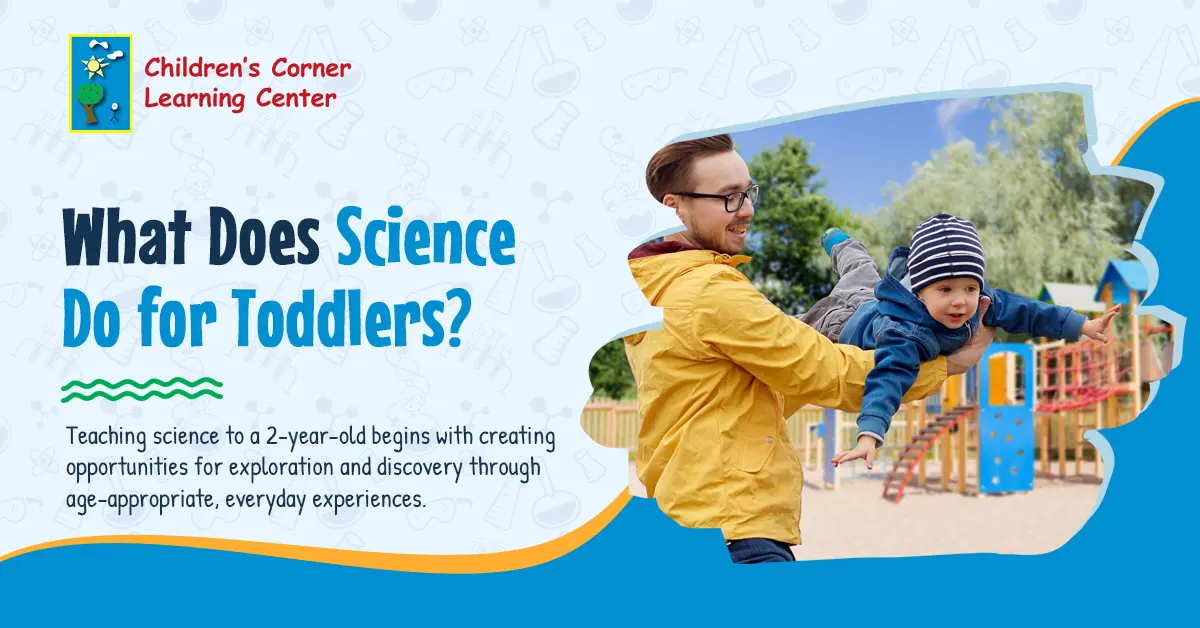
Science is foundational in supporting a toddler’s cognitive, emotional, and physical development. Toddlers understand the world through observation, experimentation, and guided play. Engaging with science builds essential early skills that influence future academic success and growth.
Supports Cognitive Development
Science encourages toddlers to think critically, ask questions, and recognize patterns. Even simple activities such as pouring water or stacking blocks involve problem-solving and prediction. These interactions contribute to the development of memory, attention, and reasoning.
- Sorting by color or shape: Builds classification and comparison skills.
- Watching objects fall: Introduces gravity and spatial awareness.
- Following sequences: Reinforces logic and process-based thinking.
- Matching items: Develop early data analysis and pattern recognition.
- Making predictions: Encourages the use of prior knowledge to anticipate outcomes.
Cognitive growth through science supports a toddler’s readiness for more complex learning in the future.
Enhances Language and Communication
As toddlers describe what they see, hear, and feel, they build vocabulary and sentence structure. Science activities provide natural opportunities to introduce new words and concepts in context.
- Describing textures: Promotes expressive language.
- Naming tools and materials: Expands subject-specific vocabulary.
- Explaining outcomes: Supports logical thinking through speech.
- Asking and answering questions: Builds conversational skills.
- Repeating actions: Reinforces learning through verbal reinforcement.
Through guided discussion, toddlers become more confident in expressing their thoughts and observations.
Encourages Social and Emotional Growth
Participating in group science activities promotes cooperation, sharing, and turn-taking. It also helps toddlers learn how to handle outcomes, including unexpected results, with resilience and curiosity.
- Taking turns during experiments: Teaches patience and respect.
- Working with peers: Develops teamwork and listening skills.
- Reacting to surprises: Builds adaptability and emotional regulation.
- Celebrating discoveries: Increases self-esteem and motivation.
- Expressing preferences: Strengthens independence and decision-making.
Science informs how toddlers think, interact with others, and manage emotions. Incorporating science into early learning provides well-rounded developmental benefits. It equips toddlers with essential skills that prepare them for academic and life success.
Tips for Creating a Science-Friendly Environment
A well-prepared learning environment is essential for fostering curiosity and exploration in toddlers. Creating a space that supports early science learning does not require complex tools or materials. Instead, it relies on thoughtful organization, accessible resources, and a consistent focus on discovery and engagement.
Designate a Safe Exploration Area
Toddlers need a secure space where they can experiment freely without risk. Select a location with easy-to-clean surfaces and ample room for movement. This allows children to investigate materials through touch, sight, and sound.
- Low shelves and containers: Provide easy access to materials.
- Soft flooring or mats: Offer comfort and safety during floor-based play.
- Child-sized furniture: Supports independence and mobility.
- Clear boundaries: Help toddlers understand safe exploration limits.
- Supervised zones: Ensure adults are always nearby for support.
A dedicated area sets the tone for focused, uninterrupted exploration and learning.
Offer a Variety of Materials and Tools
Accessible materials encourage experimentation and reinforce core scientific concepts. Items do not need to be complex; everyday objects can be highly effective.
- Measuring cups and spoons: Teach volume and comparison.
- Magnifying glasses: Promote observation of fine details.
- Recycled containers: Encourage building and sorting activities.
- Natural items: Introduce textures, colors, and biological variety.
- Water and sand trays: Provide opportunities for hands-on sensory learning.
Rotating materials regularly keeps the environment fresh and engaging, sparking renewed interest.
Support Independent and Guided Learning
Balance is essential between open-ended play and adult-facilitated activities. Children benefit from self-directed discovery and structured guidance introducing new ideas and vocabulary.
- Labeled bins: Encourage sorting and classification.
- Visual prompts: Reinforce routines and experiment steps.
- Question cards: Help guide caregiver-child interaction.
- Observation journals: Allow for simple drawing or note-taking.
- Demonstration space: Provides a place for modeling new activities.
These supports help toddlers engage meaningfully while gradually building responsibility for their learning. A science-friendly environment nurtures exploration, builds confidence, and establishes routines that promote consistent discovery. With thoughtful preparation, toddlers can safely and independently investigate the world around them.
Conclusion
Introducing toddlers to science through simple, hands-on activities lays a strong foundation for lifelong learning. By engaging in sensory exploration, asking questions, and observing everyday changes, young children begin to develop important cognitive, language, and social-emotional skills. Creating an environment that supports discovery nurtures curiosity and encourages independence and confidence. With the right tools, space, and guidance, science can become a natural and joyful part of early childhood development.
If you’re looking for a nurturing environment that inspires learning and growth, schedule a visit with Children’s Corner today. Book a tour here or call us at (800) 933 7757 to learn more.
